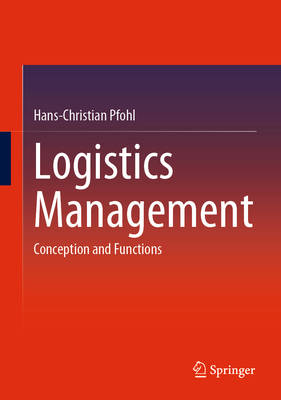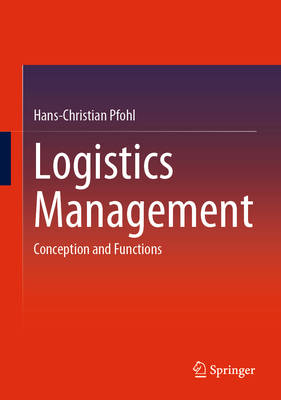
- Afhalen na 1 uur in een winkel met voorraad
- Gratis thuislevering in België vanaf € 30
- Ruim aanbod met 7 miljoen producten
- Afhalen na 1 uur in een winkel met voorraad
- Gratis thuislevering in België vanaf € 30
- Ruim aanbod met 7 miljoen producten
Omschrijving
Based on the drivers of the development of logistics, the success factors of logistics management in excellent companies are analyzed. Logistics management in and between companies requires a change in thinking on the operational as well as on the strategic and normative level of action. The functions of logistics management are explained in detail and discussed with regard to their design. The explanations are based on the presentation of the interplay of the normative, strategic and operational levels of action and the contribution of logistics to the achievement of corporate objectives. Essential building blocks for the implementation of the logistics concept are strategic logistics planning and logistics controlling. In addition to the organizational and operational issues, supply chain management is becoming increasingly important for the interorganizational realization of the logistics concept: because it is precisely from cooperation and collaboration that additional potential for sustainable value enhancement of the company through logistics arises. In order to exploit these potentials, it is important to promote suitable employees in a targeted manner. Therefore, the book concludes with a consideration of the special aspects of personnel management in logistics.
On the one hand, the book addresses the practitioner who wants to profitably implement the concepts presented here. On the other hand, it is aimed at lecturers at universities, colleges and academies to support their courses. Students who are interested in the management-related issues of logistics will receive valuable information for their studies and future professional activities.Specificaties
Betrokkenen
- Auteur(s):
- Uitgeverij:
Inhoud
- Aantal bladzijden:
- 393
- Taal:
- Engels
Eigenschappen
- Productcode (EAN):
- 9783662665633
- Verschijningsdatum:
- 23/04/2023
- Uitvoering:
- Hardcover
- Formaat:
- Genaaid
- Afmetingen:
- 172 mm x 244 mm
- Gewicht:
- 907 g

Alleen bij Standaard Boekhandel
Beoordelingen
We publiceren alleen reviews die voldoen aan de voorwaarden voor reviews. Bekijk onze voorwaarden voor reviews.











